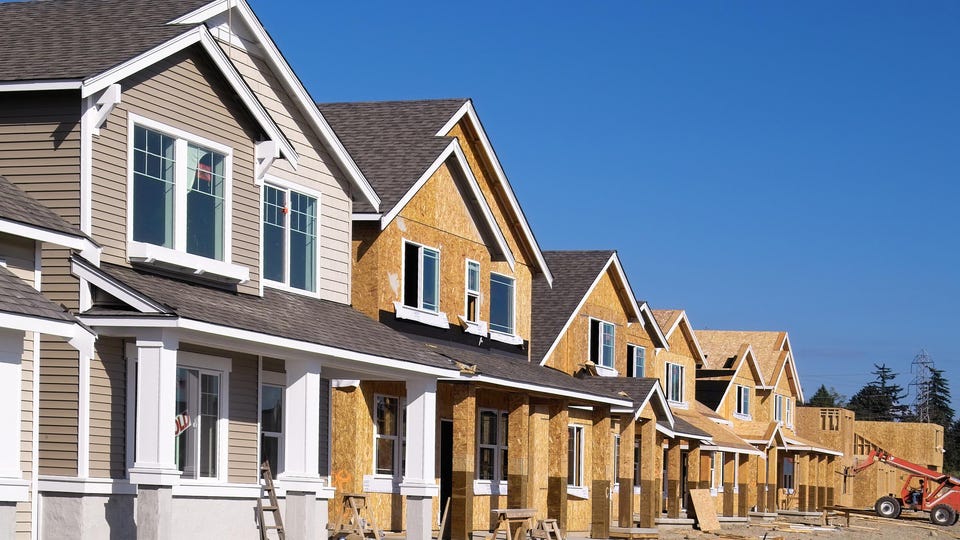“Over the last few months, Virginia Republican Gov. Glenn Youngkin has made a push to try to liberalize zoning and other land-use regulations that block the construction of new housing in the state,” notes law professor Ilya Somin.
This August, Youngkin told a committee of the state Senate that “[t]he cost to rent or buy a home is too expensive,” and said “we must tackle root causes behind this supply and demand mismatch; unnecessary regulations, overburdensome and inefficient local governments, restrictive zoning policies, and an ideology of fighting tooth and nail against any new development.” In November, Youngkin issued a “Make Virginia Home” plan, which aims to achieve land-use deregulation in several ways, thus ameliorating the “NIMBY” problem (“not in my backyard” restrictions on homebuilding).
Adam Millsap describes Youngkin’s plan in Manhattan Institute’s City Journal:
“To make housing more affordable, policymakers must boost supply relative to demand, while holding everything else, including interest rates, constant. The press release announcing Youngkin’s Make Virginia Home plan acknowledges the supply problem, promising to “promote increasing the supply of attainable, affordable, and accessible housing across the Commonwealth.” That’s a worthy goal; achieving it is another matter.
Research shows that the primary culprits behind high state and local housing costs are restrictive zoning and land-use regulations that artificially limit the housing supply. Youngkin’s plan is short on details, but it explicitly mentions establishing guardrails for local zoning and land-use review processes. The state would impose deadlines to stop local governments from slow-rolling approvals; such delays impose big costs on developers and make otherwise attractive projects financially infeasible.
The plan also calls to investigate comprehensive reforms of Virginia’s land-use and local zoning laws. But action, not study, is needed. Youngkin should consider allowing duplexes and triplexes by right, as in Minneapolis; making it easier to build accessory dwelling units (ADUs), as in California; and ending minimum parking requirements, as in Buffalo and other cities. Virginia could also prevent local governments from restricting housing by putting limits on local minimum-lot sizes, height restrictions, setbacks, and density requirements…..
Make Virginia Home also hints at permitting and other regulatory reforms, such as streamlining environmental review and making it easier for developers to meet mandated wetlands and stream-mitigation requirements….
In addition to reforming, streamlining, and even eliminating some land-use regulations via state preemption, Youngkin’s plan also mentions an incentive to encourage localities to make such reforms on their own. Specifically, it calls for creating “reasonable linkages” between discretionary state funds and local government housing policies. In essence, discretionary state funding would flow to localities that liberalize land-use regulations. Local governments could still erect barriers to new housing, but they’d risk losing money.
Finally, the plan mentions building codes, an underappreciated factor behind high housing prices. Today’s codes too often focus on marginal safety improvements, showing no concern for the higher costs of compliance. Some simple reforms would help.”
Youngkin’s plan is in the embryonic phase, and thus lacks specificity. Moreover, in Virginia, the legislature is the dominant organ of government, not the governor. For example, the Virginia legislature picks state judges, not the governor. One house of the state legislature is controlled by Democrats (the State Senate, which is 55% Democrat) and the other house is controlled by Republicans (the House of Delegates, which is 52% Republican). So Youngkin cannot dictate many changes in this area. He will have to try to enlist support from state legislators, based on what they are willing to accept.
Nevertheless, as Professor Somin notes,
“At the same time, it is notable that one of the nation’s most prominent GOP governors is backing “YIMBY” (“Yes in my backyard”) zoning reform. His support highlights the way the issue of zoning reform cuts across ideological lines. Economists and housing experts across the political spectrum decry exclusionary zoning because it increases housing costs, cuts millions of people off from jobs and educational opportunities, reduces economic growth and innovation, and particularly harms the poor and racial minorities….
Hopefully, Youngkin’s support will help move the ball on zoning reform in Virginia. We badly need it! More generally, I hope more people across the political spectrum will come to see that cutting back on zoning can create enormous benefits for both would-be movers and current homeowners in areas that now have tight land-use restrictions.“

